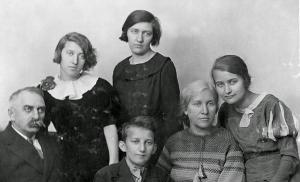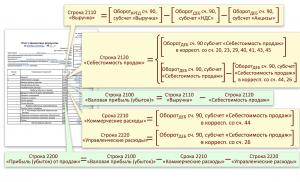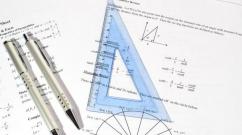Present Perfect or Past Simple is the most complete and understandable explanation of cases of use. What is the difference between Past Simple and Present Perfect Using past simple and present perfect
When to use the Present Perfect and when to use the Past Simple? From this article you will learn what the semantic difference is between these tenses, why they are often confused, and how to finally learn how to use them correctly.
Difference in meaning of Past Simple and Present Perfect
The difference between Present Perfect and Past Simple is difficult to understand, because both tenses are translated into Russian in the same way - by past tense:
I saw many butterflies - I saw a lot of butterflies.
I have seen many butterflies - I saw a lot of butterflies.
Seeing two identical translations, we do not understand the difference between saw And have seen. The point is that these translations are not all the same.
The Russian verb “saw” in these two sentences can be understood in two ways:
- “Saw” means having performed the action of “seeing” sometime in the past. “I saw a lot of butterflies when I was walking in the forest.”
- “Saw” means “already seen”, “have seen”, “I have (now) the experience of seeing something.” “I've seen a lot of butterflies, so I can tell the difference between a wren and a swallowtail.”
“Saw” in the first meaning and in the second meaning two different meanings in the same verbal shell. But in English there are two shells for these two meanings: Past Simple and Present Perfect.
When we say “saw” to mean “saw in the past”, in English it is Past Simple:
I saw many butterflies when I was walking in the forest. – I saw a lot of butterflies when I was walking in the forest.
If we say “saw” in the sense of “saw”, “I have the experience of seeing something”, in English this is the Present Perfect.
I have seen many butterflies that’s why I can tell the difference between cabbage butterfly and makhaon. – I’ve seen a lot of butterflies, so I can tell the difference between a wren and a swallowtail.
Let me give you another example:
Anna visited Paris when her father was working there. - Anna visited Paris when her father worked there.
The story is that Anna visited Paris at some point in the past.
Anna has visited Paris, she knows the city pretty well. - Anna was (already been) in Paris, she knows the city quite well.
Here we are talking about Anna's have experience visiting Paris, so she knows the city quite well. Of course, the sentence also implies that Anna visited Paris sometime in the past, but the focus is on the effect that this visit has in the present.
Now that you understand that the Present Perfect and Past Simple tenses are not translated into Russian in the same way, it will be easier for you to understand the difference between their use.
Let's look at the difference between Present Perfect and Past Simple using examples
I will give several examples when the Present Perfect and Past Simple are used in similar situations. In Russian, verbs in two forms can be translated the same way, but they have different meanings.
1. Jack repaired his truck / Jack has repaired his truck – Jack repaired the truck
- Past Simple
We are talking about an action that happened in the past:
Jack repaired his truck last week. – Jack fixed it my truck last week.
- Present Perfect
We are talking about result, consequence actions that happened in the past
Jack has been repaired his truck and now it’s . – Jack fixed his truck (Jack now has a working truck), now it’s like new.
2. Jack was in Japan / Jack has been to Japan – Jack was in Japan
- Past Simple
We're talking about the fact that Jack was once in Japan.
Jack was in Japan last summer, you coudn’t see him in London. – Jack was in Japan last summer, you couldn't see him in London.
- Present Perfect
We're talking about the fact that Jack has experience visiting Japan.
Jack has been to Japan, he knows local culture and traditions. – Jack was in Japan, he knows the local culture and customs.
3. Jack lived in London / Jack has lived in London – Jack lived in London
- Past Simple
Jack lived in London at some time in the past:
Jack lived in London in 2010. – Jack lived in London in 2010.
- Present Perfect
Jack LIVED in London for some time. It is implied that he still lives there.
Jack has lived in London more than five years. – Jack lived in London for over five years.
4. Jack lost his wallet / Jack has lost his wallet – Jack lost his wallet
- Past Simple
Jack lost his wallet sometime in the past. Loss is spoken of as a fact from the past, perhaps unrelated to the present.
Jack lost his wallet on the beach. – Jack lost your wallet on the beach.
- Present Perfect
Jack lost his wallet, it is emphasized that this loss is important now, Jack seems to be in the state of a man who has lost his wallet, is a man who has lost his wallet.
Jack has lost his wallet and can’t find it. – Jack lost his wallet and can't find it.
5. Jack didn’t hear / Jack hasn’t heard – Jack didn’t hear
- Past Simple
Jack didn't hear his neighbors talking.
Jack didn't hear his neighbors talking when he was passing by. – Jack haven't heard the way his neighbors talked as he passed by.
- Present Perfect
Jack didn't hear his neighbor calling him. The neighbor shouted “Jack, hi! I need to tell you something!”, but Jack didn’t hear and walked past. That is, we are talking not so much about an action in the past (I didn’t hear), but about it subsequently in the present– Jack did not receive the information, did not perceive it, does not possess it.
Jack hasn't heard his neighbor calling him. That's why he passed by. – Jack didn’t hear his neighbor calling him. That's why he passed by.
Typical cases when the Present Perfect is used
I will also give several typical cases, conversational patterns when the Present Perfect is used. These constructions are used very often.
- I have never seen / heard / been to – I have never seen / heard / been to
When we say that we have never done something, we do not mean an action in the past, but the current state of affairs. We seem to be talking about our current selves, about our current experience (more precisely, about its absence)
I have never seen a whale. - I've never seen a whale.
I have never heard this song. – I have never heard this song.
I have never been to Florida. – I've never been to Florida.
Note: in sentences like the last one (about Florida), there is a nuance with prepositions. When it comes to a city, country, state, we say “I was IN Florida”, but at the same time “I have been TO Florida”.
- Have you ever seen / heard / been to? – Have you ever seen / heard / been to?
The same as the previous example, but in interrogative form. Often “ever” is omitted, but the same is meant as with “ever”. That is, the question “Have you been to Englang?” means “Have you ever (at least once in your life) been to England?”
Have you ever seen a dinosaur? – Have you ever seen a dinosaur?
Have you ever heard a sparrow singing? -Have you ever heard a sparrow sing?
Have you ever been to Mordor? -Have you ever been to Mordor?
- I have already / just... - I have already / just done something
The adverb already (already) emphasizes that the action has been completed by now, and the similar adverb just - that the action has just happened.
I have already finished the last chapter. – I have already finished the last chapter.
I have just called the police. - I just called the police.
- I have done something many times / twice ... - I did something many times / twice, etc.
When we say that we have done something many times before, we mean our current experience.
I have read the book twice and still don’t understand it. – I read this book twice and still don’t understand it.
When Past Simpe is used instead of Present Perfect
Native speakers often neglect the rules and use the Past Simple instead of the Present Perfect (but not vice versa!), simplifying their lives. For language, especially informal speech, this is a normal tendency - the desire for simplicity and brevity.
For example, the correct way to say this is:
I have drunk too much, I can't drive. – I drank too much, I can’t drive.
And they say this:
I drank too much, I can't drive.
The essence of this simplification is not that native speakers do not see the semantic difference between “have drunk” and “drank” - they still see it (though not everyone can explain it), but that they express both meanings in one simple way - in a word "drank". Note that this corresponds exactly to the way we speak Russian, without inventing different words for “drank - performed an action in the past” and “drank - am a drunk.”
Conclusion: Present Perfect is the present tense, not the past tense
Due to the fact that Present Perfect is translated into Russian as the past tense, one gets the feeling that Present Perfect is a type of past tense whose name for some reason was mistakenly put the word “Present”. In fact, the key to understanding this time is this: Present Perfect is the PRESENT tense, no matter how much it seems to you that it is past.
We translate it into Russian with verbs in the past tense only because there is no suitable form of the present tense in Russian. BUT people who speak English perceive the Present Perfect as the present tense - and you will too, once you get used to it.
Friends! Now I’m not doing tutoring, but if you need a teacher, I recommend this wonderful site - there are native (and non-native) language teachers there👅 for all occasions and for every pocket :) I myself took more than 50 lessons with teachers I found there !
One of the most difficult tenses to understand in English is Present Perfect Tense(present perfect tense). Almost every person who learns English finds it difficult.
Very often this tense is confused with the past simple. After all, sentences in these tenses are translated similarly, and sometimes even identically.
In this article I will talk in detail about the Present Perfect: when it is used, how it is formed and how it differs from the past simple.
From the article you will learn:
- Rules for using the Present Perfect tense in English
- Formation of negation in Present Perfect time in English
- Formation of questions in the Present Perfect tense in English
Difference between Present Perfect and Past Simple
To help you understand when to use the Present Perfect tense, we will compare it with the Past Simple tense, with which it is often confused.
Past Simple Tense
Past Simple is translated as “past simple” tense.
When to use:We use it when we talk about events that happened in the past.
What we show: The very fact of an action that once happened.
For example:
I lost my keys.
I was losing your keys.
You lost your keys sometime in the past and now talk about it as a fact that once happened to you. For example, over lunch you told a friend that you lost your keys last week.
Present Perfect Tense
Present Perfect is translated as “present perfect (completed)” tense.
When to use: We use the present perfect when we talk about an action that happened in the past, but it matters now.
What we show: The result of an action done in the past.
Let's look at an example:
I have lost my keys.
I lost your keys.
For example, you call your wife and ask her when she will come home from work so that she can open the apartment. She asks you why you don’t do it yourself. And then you answer that you lost your keys (this has already happened) and therefore you cannot enter the apartment (the result of you losing your keys).
We see the result of this action right now : I am now without keys and cannot get into the apartment.
How to distinguish present perfect from past simple
Look at the following pictures:

For example, you were cooking dinner yesterday. And now you say it as a fact. This action has nothing to do with the present moment.

For example, you call your family for dinner. You say that you cooked dinner (action in the past). But you focus on the result - now you have a ready-made dinner.
Look at the table comparing Past Simple and Present Perfect:
| Past Simple Tense | Present Perfect Tense |
|
We use: We show: |
We use: We show: |
|
Example: I bought a bag. For example, I say |
Example: I have bought the bag. For example meshowing |
Let's look at another example.
Past Simple:
I ate.
I ate.
For example, to the question: “Did you eat yesterday?”, I say that yes, I ate. This is simply the fact of the action itself in the past: I ate yesterday, but during this time I had already become hungry and now I can eat more.
Present Perfect:
I have eaten.
I ate.
I want to say with this sentence that I ate and, as a result, now I am full. This is important to me at the moment, because now I don’t want to eat anymore.
Now let's take a closer look at the uses of Present Perfect Tense.
Rules for using the Present Perfect tense in English

Let's see in what cases we use completed time:
1. The end/result of the action is visible right now
This means that the action you are talking about has just ended. And the result of this action is visible right now.
For example:
I cleaned the room (just finished cleaning, everything is still clean).
She cooked dinner (you can see the finished dinner right now).
2. We care about the result, not the time when something was done
We only care about the result - what we did. The time it was done is not important.
For example:
She did her homework (she has a notebook with her homework ready at the moment (result), it doesn’t matter to us exactly when she did it).
He prepared the presentation (right now the presentation is ready, when he prepared it is not important to us).
3. Talk about your life experiences
That is, you are talking about what has or has not happened to you to date. The words often used are: ever, never, several (one, two, three, etc.) times.
For example:
He had never jumped with a parachute (he hadn't by now).
She has been to New York twice (by now, this is her life experience).
4. We talk about an unfinished period of time
That is, the time period you are talking about (week, month, year) has not ended, and you have the opportunity to perform the action a certain number of times.
For example:
I fed the cat twice today (the day is not over yet and you can feed her again).
He has gone ice skating three times this winter (winter is not over yet and he can do more).
Rules for forming Present Perfect Tense
The present perfect tense is formed with have/has and a verb in the past form.
There are regular and irregular verbs in English. Depending on the verb, this form is formed as follows:
- if the verb is correct, then we add the ending -ed to it: cook - cooked, finish - finished.
- if the verb is irregular, then we put it in the 3rd form: do - done, eat - eaten.
There is no rule by which we can determine the correct or irregular verb in front of us. You can only find out by looking it up in a dictionary or memorizing it. The same goes for forms of irregular verbs. You need to memorize them or look them up in the dictionary.
Now let's look at the diagram of such a proposal:
Actor + has/have + regular verb ending in ed or 3rd form of irregular verb
When we talk about someone in the singular (he - he, she - she, it - it), we use has. In all other cases - have.
| I | ||
| You | ||
| We | have | done |
| They | cooked | |
| She | bought | |
| He | has | |
| It |
They have bought a new flat.
They bought a new apartment.
She has broken her arm.
She broke her arm.
Abbreviations
We can shorten has and have in sentences. It will look like this:
has = 's
have='ve
The rule for adding the ending -ed
When we add the -ed ending to a verb, there are a few things to keep in mind.
1. If the verb ends in -e, then it is added to the verb -d only
chang e- chang ed- change
clos e- clos ed- close
2. If the verb ends to a consonant, in front of which stands stressed vowel, then the consonant is doubled
sto p-sto pped- stop
ba n-ba nned- forbid
Exceptions: verbs ending in -x and -w:
fi x-fi xed- fix
flo w-flo wed- leak
Note: V British English, when a verb ends in -l, it is doubled regardless of where the stress falls
travel l- travel lled- travel
American version:
travel l- travel led- travel
3. If the verb ends in -y and there is a consonant before it, then y changes to i+ed
cr y-cr ied- cry
tr y- tr ied- sample
Important: If there is a vowel before -u, then the ending -ed is added without change letters
sta y-sta yed- stay
pla y- pla yed- play
Tense indicators Present Perfect Tense

There are words in the English language that are very often used in the present perfect tense. Here are the main ones:
- never - never
- just - just now
- yet - not yet / already
- already - already
- lately/of late - recently
- recently - recently
- ever - ever
- this week/month/year - this week/this month/this year
They have moved recently.
They moved recently.
She has just finished.
She just finished.
But we never use the following words in the Present Perfect tense:
- yesterday - yesterday
- last week/year/month - on (in) last week/year/month
Why aren't they used?
After all, these words focus on when we performed the action, and not on the news/result of the action itself. We use them in the Past Simple.
Formation of negation in Present Perfect time
A negative sentence is constructed in the same way as an affirmative one. Only after the auxiliary verb have/has do we put the negative particle not.
The outline of such a proposal would be as follows:
Actor + has/have + not + regular verb ending in ed or 3rd form of irregular verb
| I | |||
| You | |||
| We | have | done | |
| They | not | cooked | |
| She | bought | ||
| He | has | ||
| It |
We have not done my homework.
We haven't done our homework.
She has not cooked dinner yet.
She hasn't cooked dinner yet.
Reduction
We can shorten have/has and the particle not like this:
have + not = haven’t
has + not = hasn’t
Formation of questions in Present Perfect tense
To ask a question in this tense, we need to put have/has in the first place in the sentence. Let's look at the diagram:
Have/has + character + regular verb ending in ed or 3rd form of an irregular verb?
| I | ||
| you | ||
| Have | we | done? |
| they | cooked? | |
| she | bought? | |
| Has | he | |
| it |
Have they finished?
Are they finished?
Has he met his friend?
Did he meet his friend?
The answer to the question can be positive or negative.
We can also give:
- short answer
- full answer
Short positive answer contains the word yes, an actor and an auxiliary verb:
Have did they do it? Yes, they have.
They did it? Yes.
Has he read it? Yes, he has.
Did he read this? Yes.
Short negative answer starts with no, and to the auxiliary verb we add the particle not.
Have did they do it? No, they have not.
They did it? No.
Has he read it? No, he has not.
Did she read this? No.
Complete positive answer looks like an affirmative sentence, only at the very beginning we put yes.
Have they wrote a letter? Yes, they have written a letter.
Did they write a letter? Yes, they wrote a letter.
Has did she buy the dress? Yes, she has bought the dress.
Did she buy this dress? Yes, she bought this dress.
Complete negative answer looks like a negative sentence, only at the very beginning we put no.
Have they wrote a letter? No, they haven't written a letter.
Did they write a letter? No, they didn't write a letter.
Has did she buy the dress? No, she hasn't bought the dress.
Did she buy this dress? No, she didn't buy this dress.
So, we got acquainted with the Present Perfect tense. If you still have any questions, ask them in the comments below the article. Now, to consolidate the theoretical part, let's move on to the practical task.
Reinforcement task
Translate the following sentences into English. Leave your answers in the comments.
1. He bought a car.
2. She finished her work.
3. They haven't cleaned the room yet.
4. Have you read these books?
5. He hasn't started yet.
6. We fixed the car.
7. They went to the cinema yesterday.
1. Choose the correct version of the verb from brackets and translate the conversation.
- … (Have you ever been/Did you ever go) to England?
Yes, I … (have been/went) to Oxford last spring.
- … (Have you liked/Did you like) the city?
Yes, I... (have/did). I … (have visited/visited) a lot of colleges there.
And… (have you been/did you go) to London?
No, but I … (have already bought/already bought) the tickets to London.
2. The following questions with a verb in the Present Perfect have two answer options: in the Present Perfect and in the Past Simple. Put the verbs or auxiliary verbs in your answers in the required form (negative where necessary).
For example: Have you read that book? – No, I... . (No, I haven't.)
Yes, I...it last year. (Yes, I read it last year.)
Did you read this book? - No, I haven’t read it.
Yes, I read it last year.
- Have you fed the cats? – Yes, I... . / Yes, I... them before dinner.
- Has she ever eaten snails? - No, she... . / Yes, she… them in Italy last summer.
- Have they found the photos? – No, they... . / Yes, they... them yesterday.
- Have you planted the tulips? – No, I...yet. / Yes, I… them on Friday.
- Has he already seen your garden? – Yes, he... . / Yes, he... it a month ago.
3. Complete the dialogues with verbs in the required form (Present Perfect or Past Simple).
- I... (see) Tom last night. – Oh, really. I... (not meet) him for ages.
- We... (never heard) this song before. Is it famous in your country? - Yes, it is. It… (be) quite popular here for many years.
- What... (do) last Sunday? – I... (spend) it at home. – Oh, that’s great! I … (not spend) my weekends at home since last year.
- … (you ever win) a cooking contest? – Yes, I... (win) in 2008.
- When… (you meet) Alice for the first time? – We... (meet) each other in 1997. – So how long... (you be) best friends? – We... (be) friends for more than 15 years.
4. Translate the sentences.
- The concert has just started. And yesterday it started much later.
- He broke his leg last year. He hasn't skated since then.
- Here are your shoes. I just cleaned them. – Thank you, but I cleaned them last night.
- How long have you been working at this store? – Within 5 years. – When did you become a manager? - Half a year ago.
- My brother has written several novels. Yesterday he finished the tenth book.
- Where have you been? I've already finished lunch.
- Have you ever tried to quit smoking? – I tried two years ago, but then I started getting fat.
- Have you heard the news? Our neighbors moved to Germany. – When did they move? - Last week.
- I've never slept in a tent, but I did sleep on a bench last summer.
- Today it is very foggy since the morning. Yesterday it was foggy too.
Answers:
Have you ever been – went – Did you like – did – visited – have you been – have already bought
Have you ever been to England?
Yes, I went to Oxford last spring.
Did you like the city?
Yes. I visited many colleges there.
Have you been to London?
No, but I've already bought tickets to London.
- Yes, I have. / Yes, I fed them before dinner. (Did you feed the cats? – Yes./Yes, I fed them before dinner.)
- No, she hasn’t. / Yes, she ate them in Italy last summer. (Has she ever eaten snails? – No./Yes, she ate them in Italy last summer.)
- No, they haven't. / Yes, they found them yesterday. (Did they find the photographs? – No./Yes, they found them yesterday.)
- No, I haven’t yet. / Yes, I planted them on Friday. (Have you planted tulips? – Not yet./Yes, I planted them on Friday.)
- Yes, he has. / Yes, he saw it a month ago. (Has he already seen your garden? – Yes./Yes, he saw it a month ago.)
- saw – haven’t met (I saw Tom last night. – Oh, really? I haven’t seen him in forever.)
- have never heard – has been (We have never heard this song before. Is it known in your country? – Yes. It has been quite popular here for many years.)
- did you do – spent – haven’t spent (What did you do last Sunday? – I spent it at home. – Oh, that’s great! I haven’t spent my weekend at home since last year.)
- Have you ever won – won (Have you ever won a cooking competition? – Yes, I won in 2008)
- did you meet – met – have you been – have been (When did you meet Alice for the first time? – We met in 1997 – So, how long have you been best friends? – We have been friends for over 15 years.)
- The concert has just begun. And yesterday it started much later.
- He broke his leg last year. He hasn’t skated yet since then.
- Here are your shoes. I have just cleaned them – Thanks, but I cleaned them yesterday evening.
- How long have you worked in this shop? – For 5 years. – And when did you become a manager? – Half a year ago.
- My brother has written several novels. Yesterday he finished the tenth book.
- Where have you been? I have already finished my lunch.
- Have you ever tried to give up smoking? – I tried 2 years ago but I started getting fat then.
- Have you heard the news? Our neighbors have moved to Germany. – When did they move? – Last week.
- I have never slept in a tent but I slept on a bench last summer.
- It’s been very foggy since morning today. Yesterday it was foggy too.
There is nothing better when all the explanations about the difference between the Past Simple and Present Perfect tenses are given in a very accessible form by native English speakers themselves. Look at the material that I have outlined very briefly. You will no longer have any questions about how these two tenses differ and when to use them.
What is PAST SIMPLE?
Past simple is a type of past tense that is used when we need to talk about the past that happened at a specific time. Specific words are highlighted in color.
1. I went to the movies yesterday.
I went to the cinema yesterday.
4. When I went to France, I saw the Eiffel Tower.
When I was in France I saw the Eiffel Tower.
5. I have breakfast at 8:00am.
I had breakfast at 8:00 am.
9. Peter made his first video in 2010.
Petya made his first video in 2010.
10. The store opened at 9:00am.
The store opened at 9 am.
What is PRESENT PERFECT?
1. Repeated actions in the past.
2. Never done/seen/heard/been, etc.
3. Actions took place over a certain period of time.
1. I have been to Russia five times.
I've been to Russia 5 times.
You have eaten steak many times.
You've eaten steak many times.
He has run the marathon twice.
He has run the marathon twice.
2. I have never been to Tanzania.
I've never been to Tanzania.
She has never bought an Mac computer.
He never bought a Mac.
They have never eaten duck.
They never ate duck.
When to use PAST SIMPLE and PRESENT PERFECT?
1. In general, both of these tenses are very similar and are used to indicate a past action. If you are a complete beginner, you can only use the Past Simple - the simple past. A native speaker will understand you.
2. At a more advanced level, this tablet will be useful to you; see how the meaning of the same sentence said in past simple and present perfect changes.
PAST SIMPLE |
PRESENT PERFECT |
| I played basketball for three years. I played basketball for 3 years. *I no longer play basketball, but I used to play for 3 years. |
I have played basketball for three years. I've been playing basketball for 3 years. *I started playing basketball 3 years ago and am still playing. |
| She studied English for ten years. She studied English for 5 years. *She used to learn the language, but now she doesn't learn English. |
She has studied English for ten years. She has been studying English for 10 years. *She started learning the language 10 years ago and is still learning it. |
| Susan and Daniel tried to talk at the party, but the music was too loud. At the party, Susan and Dan wanted to chat, but it was very noisy. *The party is over. They tried to communicate, but failed. |
Susan and Daniel have tried to talk, but the music is too loud. At the party, Susan and Dan tried to communicate without success, but it was very noisy. *The party is NOT over, it continues and the guys can still chat later. |
| I did not go to the music festival last week. I didn't go to the music festival last week. *Even if I wanted to, I wouldn’t be able to go, because... the festival is over. |
I have not been to the music festival this week. I wasn't at the festival last week. *Because the festival is NOT over, then I have every chance of getting to it. |
You can find this material on the channel of Justin, an American teacher.
Take a short test to reinforce the material.
Exercises
Exercise 1
Determine what time it is:
1. Last week Jack and Sarah ate pie.
2. When my mother was 25, she started working as an engineer.
3. Yesterday you ate mashed potatoes for dinner.
4. This morning we walked along the river.
5. An hour ago we were swimming in the pool.
Clue
1. Jack and Sarah ate a pie last week.
2. My mom started working as an engineer when she was 25 years old.
3. You ate mashed potatoes at dinner last night.
4. We walked next to the river this morning.
5. We swam in the pool one hour ago.
Exercise 2
Determine what time it is.
1. I haven't talked to Jack yet.
2. Susan hasn't been to France yet.
3. We have been playing football for two years now.
4. They ate five pieces of chicken.
5. I didn’t go to school today.
Clue
1. I haven’t talked to Jack yet.
2. Susan hasn’t been to France yet vs Susan didn’t go to France last year.
3. We have played soccer for two years.
4. They have eaten five pieces of chicken.
5. I haven’t gone to school today.
Exercise #3
Fill in the correct verbs in the blanks.
1. At Christmas, I ____________ (ate/have eaten) too much food.
2. He ___________ (went/has been) to the party last night.
3. You ___________ (didn’t go/have never been) to Canada.
4. I ___________ (did/have done) yoga many times.
5. We _________ (talked/have talked) on the phone yesterday.
“similar” times using examples from TV series and movies. This time we’ll take a rather complex pair: Present Perfect and Past Simple. And the legendary “Friends” will act as a provider of examples.
I’ll Be There For You: difference between past simple and present perfect
The difficulty with these tenses for us is that often both tenses are translated into Russian the same way. For example:
I’ve already seen that film – I have already saw This movie.
I saw him yesterday – I saw him yesterday.
Why then different times?! What is the difference between Past Simple and Present Perfect?! There are several ways to understand it forever.
1. Understand logic. I suggest two assistants. First: . As a second assistant, I highly recommend watching a video that clearly explains the logic of using the Present Perfect in comparison with the Past Simple.
You can start watching from 3:59. Personally, I liked the analogy with the curtain and examples from the Russian language: verbs went And left.
2. Practice! At one time, when I was struggling with these times, older comrades said: if you start using the Present Perfect, the understanding will come to your mind - you will “feel” this time. So keep the exercises on and (free workouts available after registration).
3. Remember the cases of using both tenses. This article will help you. The fact is that, despite all the difficulties, the Present Perfect has a list of cases of obligatory use, which is quite memorable. Use the Present Perfect in this number of cases, and the Past Simple in the rest, and everyone will understand you.
Now let's find examples for the main use cases of both tenses.
We Were On a Break! The first difference between Present Perfect and Past Simple
The Past Simple is used to express a completed past action when a specific time is specified, for example: yesterday, last week, on Sunday, an hour ago, long ago, the other day, in 1990.
Season 1 episode 7. Chandler is stuck in the ATM lobby with model Jill Goodacre. In a phone conversation, Jill tells her mom that she's stuck with "some guy" and Chandler begins to fantasize and say to himself:
Chandler: Oh! Some guy. Some guy. 'Hey Jill, I saw you with some guy last night. (Oh, some guy. Some guy. ‘Hey, Jill, I saw you with some guy last night.’)

Chandler imagines Jill being told that they saw her with some guy last night. The exact time is given - the Past Simple is used.
Now let's find the same verb, but in the Present Perfect. Let's jump to season 10, episode 7 and take Chandler's line again. A call rings in his and Monica's apartment, Chandler picks up the phone and then asks Monica if she has seen Joe's bat:
Chandler: Have you seen Joey's bat? (Have you seen Joe's bat?)

This time the time is not indicated, and it is not important - the main result is: did Monica see the bat, and therefore, does she know where the desired object is.
SUMMARY:
How do you do? Second difference between Past Simple and Present Perfect
We said that if time is indicated, then we use the Past Simple. BUT! Please note: this must be a complete period of time.
Let's look at examples. Season 1 episode 4. Rachel, Monica and Phoebe reminisce about their past misdeeds. Monica remembers Rachel's 7th grade:
Monica: Well, at least ‘big girls’ don’t pee in their pants in seventh grade! (Well, at least 'big girls' don't pee their pants in 7th grade!)
Rachel: I was laughing! You made me laugh! (I laughed! You made me laugh!)

The girls talk about a long-past period of life: 7th grade. Past Simple is used.
The Present Perfect is used if the time has not yet ended: this week / month/ year, two months / years, since Monday / 2000 / 5 a.m. Also with words like: ever, never, in my life, keeping in mind that life is also a period of time that has not ended. 🙂
The very first episode. Rachel ran away from her fiancé and is enjoying the start of a new, independent life, an indicator of which, as it seems to her, is that she made the coffee herself:
Rachel: Isn't this amazing? I mean, I have never made coffee before in my entire life. (Isn't that amazing? I mean, I've never made coffee in my life).

Remember these markers for the Present Perfect: just, already, yet, ever, never, this week / month / year, two months / years, since Monday / 2000 / 5 a.m. etc.
SUMMARY:
Oh...My...God! How to distinguish Present Perfect from Past Simple
Let's name another difference, which, this time, focuses on logic rather than on some time markers. When we use the Past Simple, we talk about the past, which is not related to the present tense. The situation may have changed since then, for example: I lost my key, but I found it the next day(I lost my keys, but found them the next day).
When we use the Present Perfect we are talking about something that happened in the past but is relevant now. For example, if you were explaining why you can’t get into the house now: I have lost my key(that is, you don’t have the key now, the situation has not changed, the key is lost).
Let's find examples in the series. Season 1, episode 19. Ross leaves his monkey Marcel in the care of Rachel, who loses him. All his friends are looking for him, and in the end, not without difficulty, they find him. Rachel still feels guilty about this incident:
Rachel: Oh, Ross, c'mon. It’s my fault, I almost lost your... (Ross, stop it. It's only my fault I almost lost yours...)
Ross: Yeah, but you were the one who got him back, y’know? You were great. (Yeah, but you were the one who brought him back, you know? You were great.)

The monkey has already been found. The fact that Rachel lost her is already history and has nothing to do with now.
Reverse example. Season 9, episode 20. Ross meets his new colleagues - Professor Wheeler (it turned out that this is a charming girl - Charlie) and Professor Spafford. The second one turns out to be an incredible bore and constantly talks about his many allergies. They sit together in a cafe, and when Spafford goes to the restroom, Ross states:
Ross: I've lost the will to live. (I lost the desire to live).

Ross’s phrase is still relevant: right now he’s so bored that he doesn’t want to live...
SUMMARY:
Va fa a Napoli: what is the difference between Present Perfect and Past Simple
I’ll add about 2 more cases of using the Present Perfect.
First: when we talk about an action that began in the past and is still ongoing in the present.
“But for this case it is used !!!», – you will object.
And you'll be right. But the Present Perfect Continuous is replaced by the Present Perfect if the verb cannot have the Continuous form. These are verbs like to like, to love, to wish, to sound, to need, to believe and etc.
Let's return to episode 7 of season 1 to Chandler stuck in the lobby. He makes friends with his famous partner in misfortune, and she teaches him to rotate a pen around his head. But Chandler just can't do it.
Jill: Chandler, we've been here for an hour doing this! Now watch, it's easy. (Chandler, we've been doing this here for an hour! Look, it's so easy!)

Jill couldn't say: We've been being here... Therefore, the Perfect form was used instead of the Perfect Continuous.
SUMMARY:
Second: to describe actions that were repeated several times.
We will find an example again in the first season, this time in episode 14. Joe persuades Chandler to go on a double date with him, because his companion will come with her friend. This friend turns out to be (Oh my God!) Janice - the girl Chandler is constantly trying to get rid of.
Joey: Just calm down. (Just calm down)
Chandler: Calm down? You set me up with the woman that I've been dumped twice in the last five months! (Calm down? You set me up with a woman I've dumped twice in the last 5 months!)

BUT! Do not confuse this with listing DIFFERENT sequential actions in the past. In this case we will use the Past Simple.
Season 3. The same Chandler, oddly enough, already in love with Janice, tells his friends how his meeting with his beloved went:
Chandler: …. And then I... threw the bag of barley at her, and ran out of the store. (And then I... threw a bag of barley at her and ran out of the store).

Chandler lists sequential actions he has taken in the past.
SUMMARY:
Present Perfect and Past Simple: comparison table
Let's summarize and put all use cases in one table.
| Past Simple | Present Perfect |
| To express a completed past action, if the time is specified. | time not specified. Time is not important. |
| To express a past action, if the time period has already ended: yesterday, last week, on Sunday, an hour ago, long ago, the other day, in 1990. | To express a completed action if the time period has not yet ended: today, this week/month/year, ever, never, etc. |
| If something happened in the past, but in the present the situation has already changed. Action is not connected to the present. | If something happened in the past, but the result of this action is still valid present. |
| To describe a series consecutive actions in the past. | To describe the actions that repeated repeatedly. |
| To describe an action that began in the past and has not yet ended. Instead of the Present Perfect Continuous with verbs that are not used in the Continuous form. |













